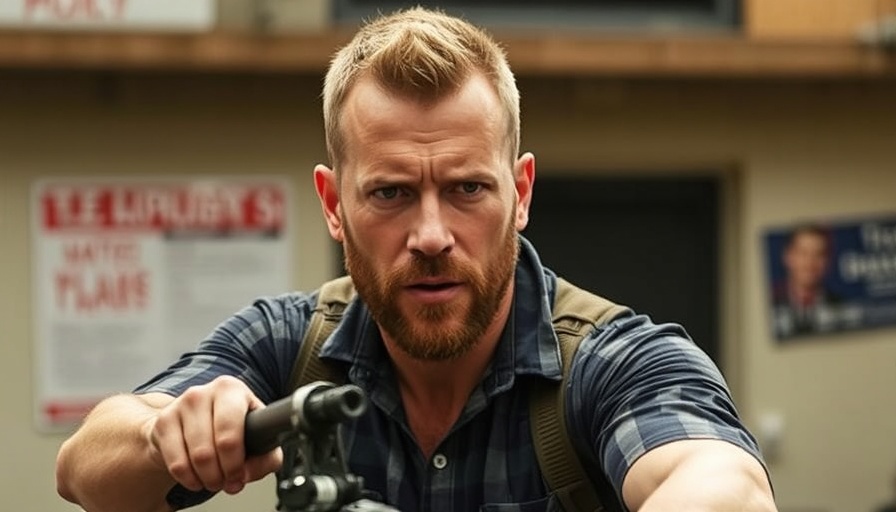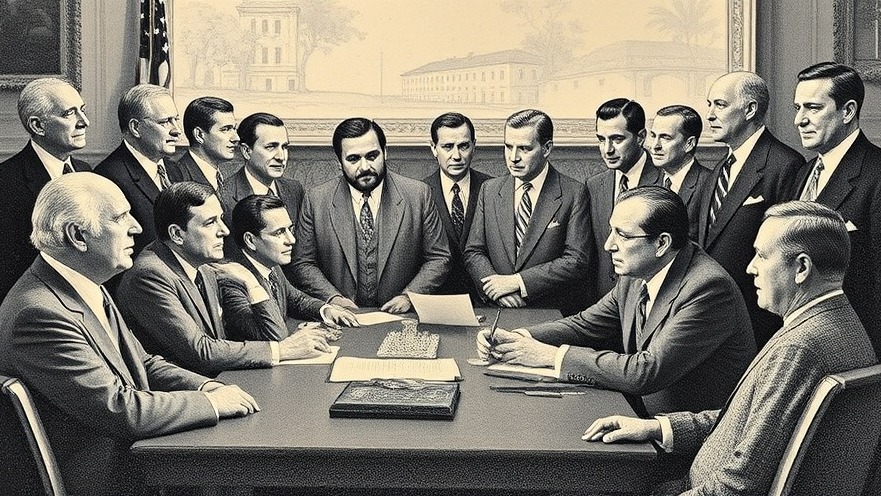
The Relentless Pursuit of Action: An Overview of A Working Man
In the latest film from action star Jason Statham, A Working Man, the narrative combines themes of social justice with the relentless physicality we expect from the action genre. Directed by David Ayer and co-written by Sylvester Stallone, this film taps into the complexities of working-class identities while positioning Statham’s character, Levon Cade, as an unlikely hero in the fight against sex trafficking.
Working-Class Hero or Overworked Cliché?
A Working Man attempts to strike a balance between traditional action tropes and a more nuanced sentiment about social issues. Statham's character is not just a fighter; he is a father struggling for custody, which adds layers to his motivations. The film addresses broader issues, such as the systemic nature of sex trafficking, yet its execution remains on the familiar ground of action clichés. It begs the question: can we truly root for a character fighting against real-world injustices when the narrative feels too much like a formulaic screenplay?
A Director's Signature: David Ayer's Vision Meets Stallone's Influence
David Ayer is known for films steeped in heavy themes with gritty realism, exemplified in earlier works like Training Day. In collaboration with Stallone, Ayer straddles the line between realism and the escapism of classic action films. The pairing brings both a camaraderie and an awkward tonal dissonance to the film, with some classic Statham action sequences juxtaposed against scenes that feel more like Stallone’s heartfelt dramas. The dialogue occasionally reflects the earnestness of Stallone's style, which might attract a different audience than those who typically favor Statham's action reels.
The Visual Narrative: A Mixed Bag
The visual storytelling of A Working Man follows a frenetic approach. The film oscillates between crisp, modern cinematography and grainier textures reminiscent of early 2000s action films. This inconsistency can be jarring, and may distract from the film's emotional core. The shifting aesthetics can symbolize the confusion surrounding contemporary issues, but it might alienate viewers hoping for a straightforward presentation of action.
Counterarguments: Reviews and Audience Reception
The film has received mixed reviews, with some audience members appreciating the film’s earnest attempt to address social issues. Others find fault in its cliched narrative and over-reliance on Statham's usual action hero bravado. The perspective on action movies is evolving, placing more emphasis on storytelling and character depth. A Working Man may struggle to meet these new expectations, causing some fans to feel unsatisfied as they leave the theater.
Conclusion: Can Action Films Evolve?
The success of A Working Man may hinge on its ability to balance the thrill of action with authentic storytelling. While it raises important themes about social justice, the execution remains questionable. For digital nomads interested in the culture of cinema, the film can serve as a reflection of broader societal issues but may require a greater leap of faith than past Statham works. As we continue to consume media, we must ask ourselves—what kind of stories do we want to support?
This film challenges the notion of what a typical action film can represent. While it grapples with important issues, the effectiveness of this approach remains to be seen. Viewers are encouraged to reflect on this as they consider the narratives that resonate in today’s world.
 Add Row
Add Row  Add
Add 




Write A Comment